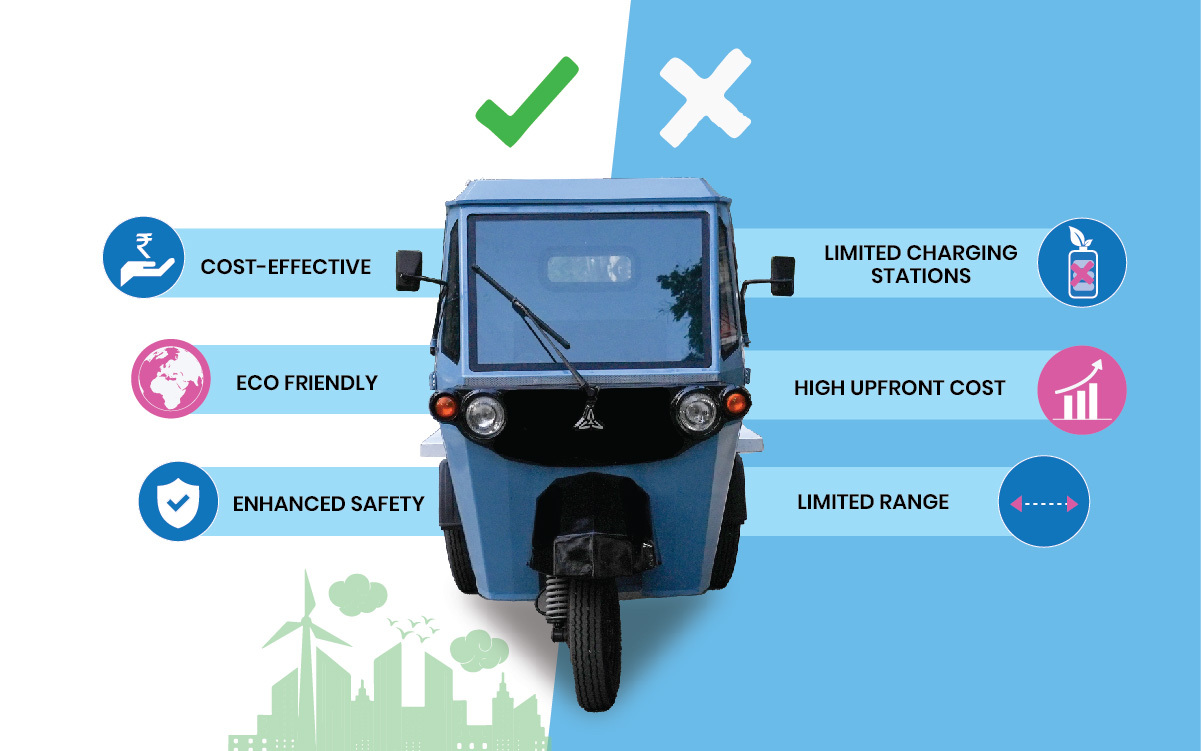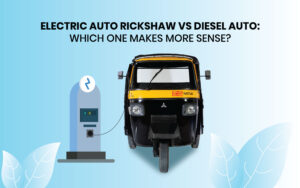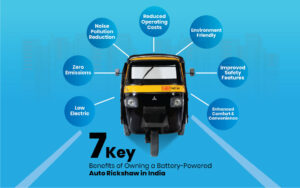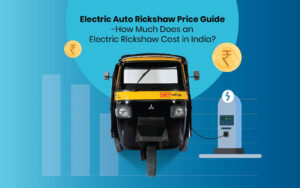Pros and Cons of Electric Loaders for Businesses: A Detailed Overview
Electric loaders, a crucial part of the growing technology sector, are gaining traction in various industries. They are designed to move heavy loads with a focus on energy efficiency and environmental sustainability. These machines are becoming increasingly popular among businesses that are looking to modernize their fleets, reduce operating costs, and contribute to greener operations. However, like any significant technological investment, electric loaders come with both advantages and challenges. In this blog, we will explore the key pros and cons of electric loaders for businesses to help you make an informed decision.
What is an Electric Loader?
An electric loader is a type of heavy-duty equipment that uses electric power instead of conventional internal combustion engines to carry out tasks such as lifting, loading, and transporting materials. These loaders are typically used in warehouses, construction sites, agriculture, and logistics operations. With advancements in battery technology, electric loaders are now capable of handling the same types of tasks as their diesel counterparts, but with a reduced carbon footprint.
The Pros of Electric Loaders
1. Environmental Benefits
One of the most compelling reasons businesses are making the switch to electric loaders is their positive impact on the environment. Traditional loaders powered by fossil fuels emit a significant amount of CO2 and other pollutants, contributing to climate change and air pollution. Electric loaders, on the other hand, produce zero tailpipe emissions, making them an eco-friendly alternative that helps reduce a business’s carbon footprint.
- Reduction in Greenhouse Gas Emissions: By using electric loaders, businesses can significantly cut their overall greenhouse gas emissions.
- Lower Noise Pollution: Electric loaders are quieter compared to combustion engine loaders, making them ideal for noise-sensitive environments, such as indoor facilities and urban areas.
2. Lower Operating Costs
Electric loaders typically have lower operating costs when compared to combustion engine loaders. While the initial purchase price may be slightly higher, the long-term savings can make the investment worthwhile.
- Reduced Fuel Costs: Electric loaders are powered by electricity, which is often more affordable than diesel or gasoline. This results in lower fuel costs over time.
- Less Maintenance: Electric loaders have fewer moving parts than traditional loaders. As a result, maintenance costs are generally lower and downtime is reduced.
Read More: Cost Comparison – Electric Loaders Vs. Traditional Loaders in India
3. Improved Efficiency
Electric loaders are designed with advanced technologies that allow for better energy efficiency. These machines can work longer hours without overheating and maintain consistent performance throughout the day.
- Battery Technology: As battery technology continues to improve, electric loaders are becoming more powerful and capable of lasting longer on a single charge.
- Faster Operations: Many electric loaders feature smooth acceleration and deceleration, which enhances operational efficiency and reduces the time spent on tasks.
4. Enhanced Safety Features
Electric loaders come with a range of built-in safety features that help prevent accidents and improve worker safety.
- Regenerative Braking: This feature allows the loader to slow down by converting kinetic energy into stored energy, providing smoother braking and reducing the risk of sudden stops.
- Lower Risk of Fire or Explosions: Electric motors pose a lower risk of catching fire or causing explosions compared to fuel-powered engines, adding an extra layer of safety to the workplace.
5. Positive Brand Image
As businesses are becoming more conscious of their environmental and social responsibilities, using electric loaders can improve your brand’s image. By switching to electric loaders, businesses can showcase their commitment to sustainability, attracting eco-conscious customers and investors.
- Sustainability Commitment: Adopting green technologies demonstrates that your business is committed to minimizing its environmental impact.
- Attracting Eco-Conscious Clients: Many consumers and businesses are now actively choosing eco-friendly partners. Operating electric loaders can be a competitive advantage.
The Cons of Electric Loaders
While electric loaders offer numerous benefits, they also come with some drawbacks that businesses should carefully consider.
1. High Initial Investment
One of the primary challenges associated with electric loaders is the high upfront cost. Although operating costs are lower in the long run, businesses may need to invest significantly more in purchasing an electric loader compared to a conventional loader.
- Higher Purchase Price: The initial price of electric loaders can be significantly higher than diesel or gas-powered models. This may deter smaller businesses with tight budgets from making the switch.
- Battery Replacement Costs: While electric loaders require less maintenance, battery replacement can be expensive, especially as the battery ages over time.
2. Limited Range and Charging Time
Despite improvements in battery technology, electric loaders still face limitations when it comes to range and charging time, especially when compared to traditional fuel-powered loaders.
- Battery Life and Charging Infrastructure: The range of electric loaders can be restricted by battery capacity. Additionally, charging stations may not always be readily available, making it challenging to maintain constant uptime on large construction sites or warehouses.
- Longer Downtime for Charging: Unlike fueling up a diesel loader, which takes a few minutes, charging an electric loader can take several hours, potentially leading to operational delays during shifts.
3. Performance in Extreme Conditions
Electric loaders can sometimes struggle to operate efficiently in extreme weather conditions, particularly in very cold temperatures.
- Cold Weather Performance: In freezing temperatures, battery performance can be significantly reduced. This may impact the efficiency and range of electric loaders during winter months.
- Heavy Duty Requirements: While electric loaders are suitable for many tasks, they may not be as effective in extremely heavy-duty applications that require high torque or power over extended periods.
4. Limited Availability of Electric Models
Not all industries or applications currently have access to a wide range of electric loader models. As the technology is still evolving, businesses may find that the available electric loaders do not meet their specific needs in terms of size, lifting capacity, or specialized features.
- Customization Needs: Electric loaders may not offer the same level of customization or diversity in design as traditional loaders.
- Limited Models in Certain Industries: Electric loaders may not be suitable for all industries yet, limiting their widespread adoption.
5. Charging Infrastructure Costs
While the cost of operating electric loaders is lower, setting up the required charging infrastructure can be costly.
- Charging Stations Setup: If a business doesn’t already have charging stations, the installation can be expensive. This cost must be factored into the decision-making process when considering electric loaders.
- Ongoing Energy Costs: While electricity is generally cheaper than diesel, the ongoing cost of powering the charging stations can add up, particularly for large fleets.
Conclusion
Electric loaders are an exciting and eco-friendly alternative to traditional fuel-powered machines. They offer businesses a range of benefits, including reduced operating costs, enhanced sustainability, and improved workplace safety. However, the high initial investment, limited range and potential charging challenges should also be considered when making the switch.
For businesses that are looking to modernize their equipment and take steps toward a greener future, electric loaders present a promising opportunity. However, careful planning and an understanding of the specific operational needs are essential to fully leverage the potential of electric loaders and ensure a successful transition.




